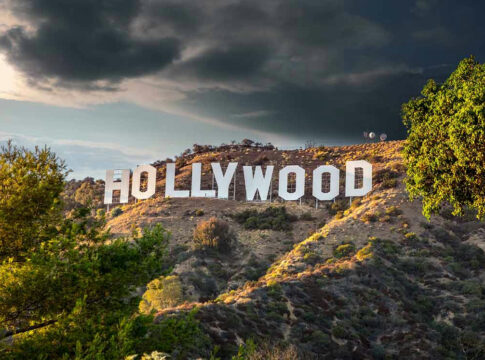Michael Douglas and Danny DeVito are celebrating the 50th anniversary of One Flew Over the Cuckoo’s Nest—a film that, against all odds, toppled Hollywood’s old guard, skewered institutional authority, and still manages to make Hollywood elites squirm half a century later.
The 50th Anniversary: A Triumph of American Grit Over Hollywood Groupthink
In an era when Hollywood churns out endless superhero schlock and “woke” reboots nobody asked for, it’s almost a revelation to remember the days when movies like One Flew Over the Cuckoo’s Nest actually had something to say—and did it without tiptoeing around delicate sensibilities. July 2025 marks half a century since Miloš Forman’s adaptation of Ken Kesey’s novel hit American theaters, ignited the box office, and left the Academy Awards establishment gasping as it swept the “Big Five.” The film’s return to theaters, complete with a 4K restoration and a new introduction by film historian Leonard Maltin, is more than nostalgia; it’s a reminder of what Hollywood could be if it stopped pandering and started challenging the status quo again.
Michael Douglas, who produced the film after inheriting the rights from his father Kirk Douglas, has spent the anniversary tour crediting the unlikely team that brought this anti-authoritarian classic to life. Danny DeVito, whose career began with this film, recalls the camaraderie among the cast—most of them then-unknowns—living together in a motel and filming on location at Oregon State Hospital. The result was a movie rooted in authentic frustration with bureaucratic overreach, told by a cast and crew who actually believed in the story’s message: that unchecked authority is dangerous, and individuality is worth fighting for.
From Rejection to Reverence: The Film Hollywood Didn’t Want to Make
One Flew Over the Cuckoo’s Nest was never supposed to succeed. Kirk Douglas spent over a decade trying to get the film made, only to be stonewalled by studios afraid of its anti-institutional message. It was Michael Douglas, still trying to prove himself as more than a Hollywood legacy, who finally wrangled the financing, brought in the uncompromising Czech director Forman, and cast a then-constantly-snubbed Jack Nicholson in the lead. Filming began in January 1975 at Oregon State Hospital—not a soundstage, but the real deal. The production’s authenticity, fueled by a cast forced to live together and commiserate about their shared outsider status, is palpable on screen. The film’s success wasn’t just a fluke; it was the direct result of refusing to play by the rules of a system that rewards mediocrity and toeing the party line.
Upon its release, the film became a sensation, second only to Jaws at the box office, and earned nine Oscar nominations. It won Best Picture, Best Director, Best Actor, Best Actress, and Best Screenplay—the first time in over forty years that a film had claimed all five major awards. For Jack Nicholson, who had endured years of Academy snubs, the victory was especially sweet. He’d almost skipped Oscar night, convinced he’d be ignored yet again. Instead, he walked away with a trophy and a role that would define his career.
Legacy and Lessons: Why One Flew Over the Cuckoo’s Nest Still Rattles Cages
Fifty years later, One Flew Over the Cuckoo’s Nest is more than just a classic; it’s a warning. The film’s battle between McMurphy and Nurse Ratched is a stand-in for every fight Americans have ever had with out-of-touch bureaucrats, know-it-all experts, or self-appointed guardians of order. It’s no wonder the film was preserved in the National Film Registry as “culturally, historically, or aesthetically significant.” The American Film Institute ranks it among the greatest films ever made—a fact that still irritates critics who’d rather see awards handed out for box-checking diversity than for challenging the system.
The film’s impact went beyond Hollywood. It forced a national conversation about the treatment of mental health patients and the dangers of unchecked authority in institutions. Nicholson, Louise Fletcher (whose terrifying Nurse Ratched earned her an Oscar), and Forman all saw their careers elevated. For Michael Douglas, the film was proof positive that betting on substance over style—and on freedom over control—pays off. The film’s enduring relevance is a testament to what happens when artists refuse to bow to the “experts” and instead tell the truth, even if it makes people uncomfortable.
Sources:
Wikipedia: One Flew Over the Cuckoo’s Nest (film)
YouTube: Jack Nicholson’s Oscar acceptance speech
IMDb: Awards for One Flew Over the Cuckoo’s Nest
Oscars.org: 48th Academy Awards (1976)


